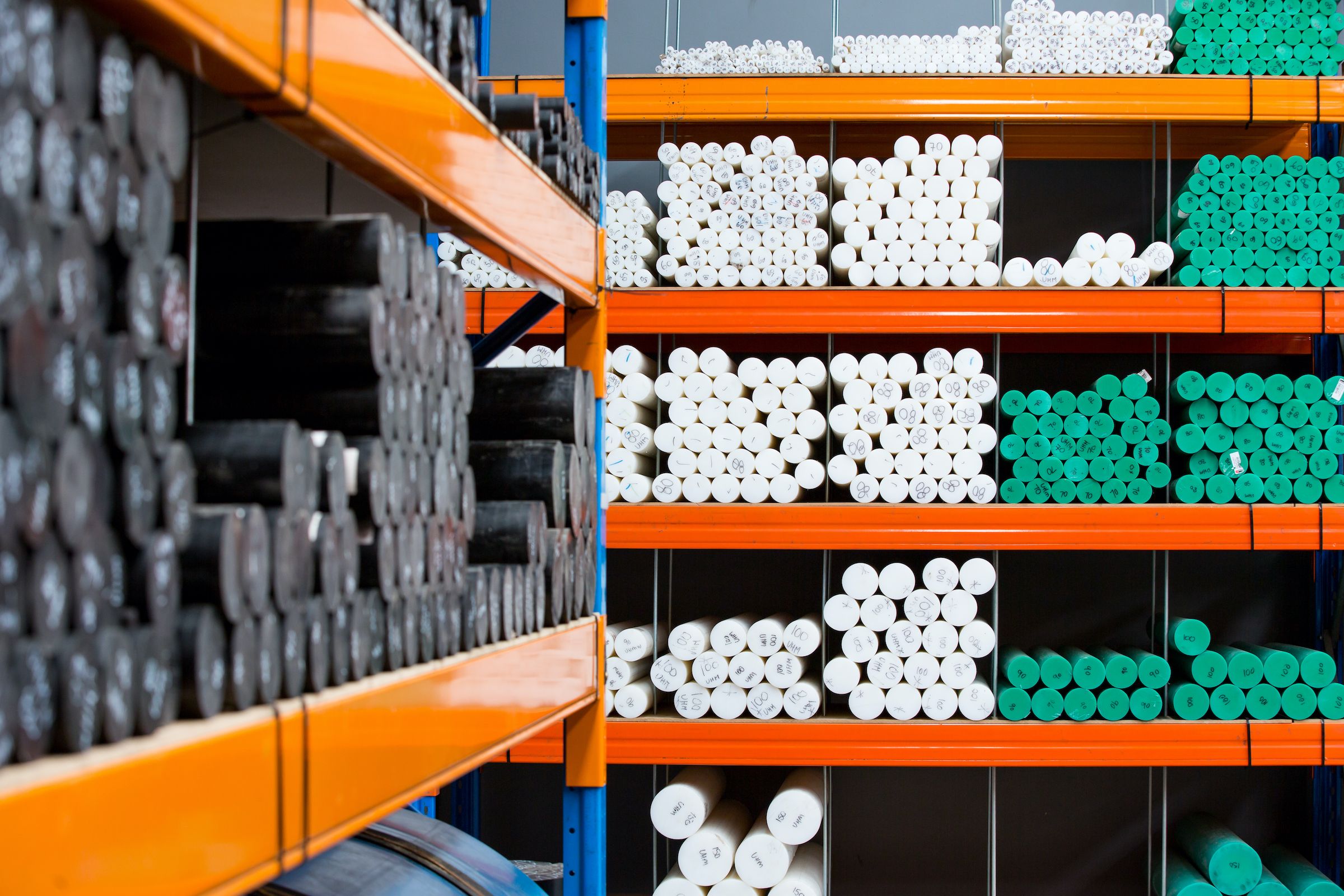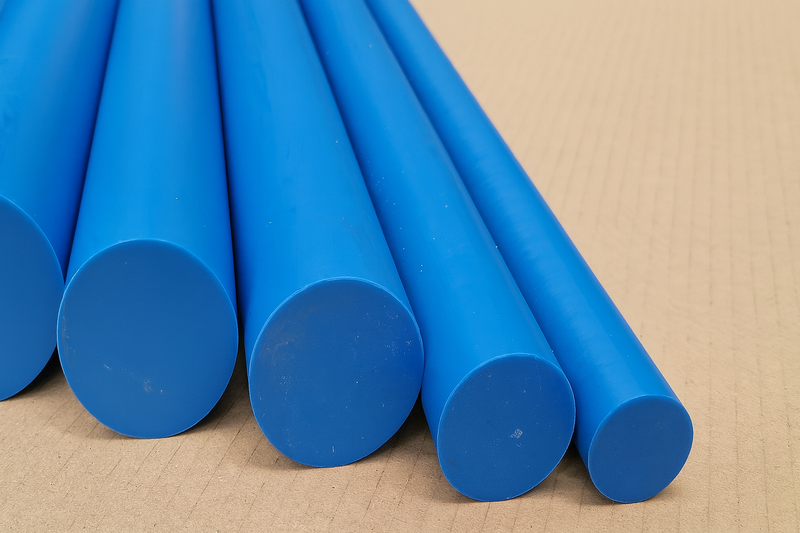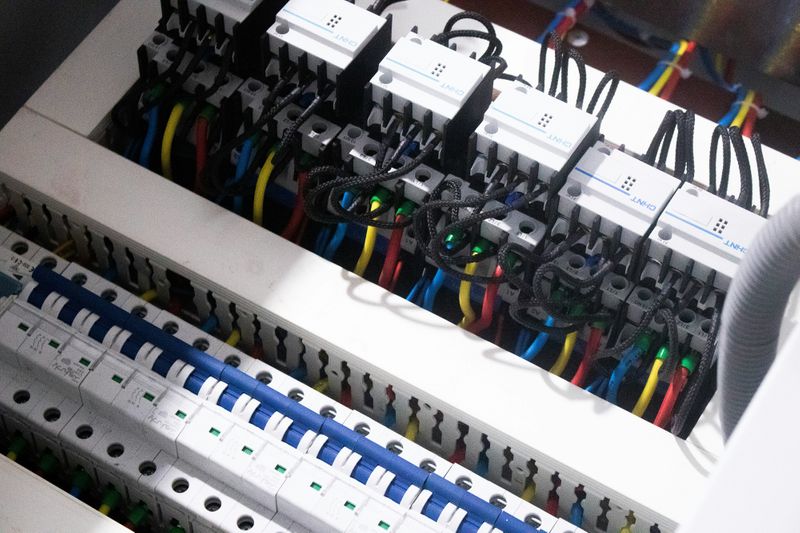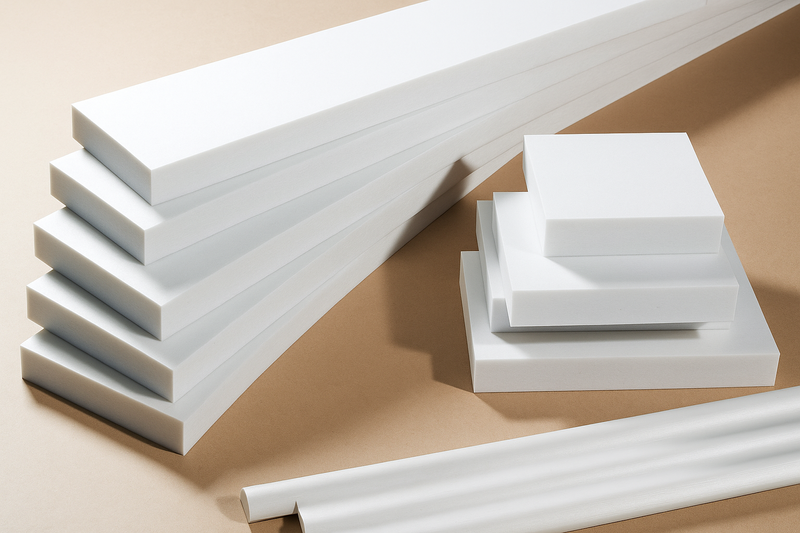At a glance
- Introduction to POM-Acetal.
- Different properties of DYNEX's POM-Acetal; mechanical, thermal, and chemical properties.
- One-stop shop for engineering plastics.
Polyacetal, commonly known as acetal or polyoxymethylene (POM), is a formaldehyde-based, semi-crystalline engineering thermoplastic. It is widely recognised for its exceptional properties and versatile applications. In this article, we will explore the distinctive characteristics of DYNEX's POM-Acetal, shedding light on its molecular structure, development over the years, and key properties.
What is POM-Acetal?
Polyacetal, also known as POM, is a type of strong and durable plastic with some cool properties. It's great at resisting wear and tear and chemicals and stays in shape well. It's part of a group of plastics made specifically for industries that need high-performance materials.
POM-Acetal is made from a chemical called formaldehyde, which has a special structure. Imagine a carbon atom with two -OR groups attached to it. The chemical formula for POM-Acetal is (CH2O)n, meaning it has a repeating formaldehyde unit chain. This unique structure gives it amazing properties, which is why it's used in many different things.
Over the years, POM-Acetal has undergone significant advancements in polymer chemistry, manufacturing techniques, and its range of available grades. These developments have expanded its application possibilities and enhanced its performance in demanding environments.
Join us as we explore the remarkable world of DYNEX's POM-Acetal and gain valuable insights into its distinctive characteristics.
Properties of DYNEX POM-Acetal
DYNEX's POM-Acetal exhibits a range of exceptional properties contributing to its popularity as an engineering plastics. This section will explore the key properties of DYNEX's POM-Acetal, including its mechanical, thermal, chemical, electrical, and physical characteristics.
Mechanical properties
DYNEX's POM-Acetal offers high strength and rigidity, making it suitable for applications that require structural integrity and load-bearing capabilities. It exhibits relatively stiff, hard, and strong properties. Different variations of DYNEX's POM-Acetal, such as Impact Modified POM and Mineral Filled POM, provide enhanced toughness and flexibility, offering options for specific application requirements.
- Unreinforced POM is relatively stiff, hard, and strong but not very flexible.
- Impact Modified POM is less stiff and hard than Unreinforced POM but is tougher and more flexible.
- Low Friction POM has properties similar to Impact Modified POM.
- Mineral Filled POM is the stiffest and hardest among the four types, offering high strength and moderate flexibility.
Low friction coefficient
One of the standout features of DYNEX's POM-Acetal is its low friction coefficient. This property reduces wear and tear in applications involving sliding or rubbing components, resulting in improved efficiency and extended lifespan. It is particularly beneficial in applications where low friction is crucial, such as bearings, gears, and sliding mechanisms.
Thermal properties
DYNEX's POM-Acetal demonstrates good heat resistance, allowing it to withstand elevated temperatures without significant loss of mechanical properties. It can withstand temperatures within a range of 80-105°C while remaining ductile at lower temperatures, such as -40°C. This makes it suitable for applications that experience varying temperature conditions.
- Unreinforced POM and Impact Modified POM have moderate fire resistance and can be classified as HB (horizontal burn).
- Unreinforced POM has a moderate thermal expansion rate.
- Mineral Filled POM has a slightly lower thermal expansion rate.
(Thermal Expansion: Thermal expansion refers to the tendency of an object to expand or increase in size when it gets heated. When you heat something, like a solid material such as metal or a liquid like water, its molecules move around more vigorously. This increased movement causes the molecules to spread out and take up more space, which expands the material.)
Chemical resistance
The chemical resistance of DYNEX's POM-Acetal depends on the specific type or variation. Unreinforced POM, Impact Modified POM, Low Friction POM, and Mineral Filled POM show varying resistance levels to different substances.
- Unreinforced POM, Impact Modified POM, Low Friction POM, and Mineral Filled POM have limited or unsatisfactory resistance to substances like acetone, aromatic hydrocarbons, hydrogen peroxide, and strong concentrated acids.
- They all have satisfactory resistance to substances like ammonium hydroxide, gasoline, kerosene, methanol, mineral oil, and ethanol.
- Low water absorption, making it suitable for applications where moisture resistance is essential.
Electrical properties
DYNEX's POM-Acetal demonstrates good insulation characteristics and moderate resistance to electrical arcing. Unreinforced POM, Impact Modified POM, Low Friction POM, and Mineral Filled POM offer similar electrical properties, making them suitable for electrical and electronic applications where insulation is crucial.
- Good insulation characteristics ensure effective electrical insulation and minimise the risk of electrical arcing.
- High dielectric strength, indicating its ability to withstand high voltages without breakdown or damage.
Physical properties
DYNEX's POM-Acetal has fair resistance to gamma radiation but poor resistance to high temperatures and UV light. It exhibits low water absorption and has different density ranges. Additionally, variations such as Unreinforced POM, Impact Modified POM, Low Friction POM, and Mineral Filled POM have specific temperature ranges within which they remain ductile, providing options for applications with different temperature requirements.
All four types of POM have a fair resistance to gamma radiation but poor resistance to high temperatures and UV light:
- They all have low water absorption and different density ranges.
- Unreinforced POM can withstand temperatures between 80-105°C and remains ductile at -40°C.
- Impact Modified POM has similar temperature ranges and remains ductile at -50 to -40°C.
- Low Friction POM has the same temperature ranges as Unreinforced POM and remains ductile at -40°C.
- Mineral Filled POM has the same temperature ranges and remains ductile at -40°C.
In need of high-quality POM-Acetal?
Are you in need of top-quality engineering plastics for your projects? Look no further than ePol, one of the leading plastic manufacturers in the industry. We specialise in providing high-performance engineering plastics that meet the most demanding requirements.
Whether you're working on automotive applications, electrical and electronics projects, consumer goods, or any other industry that relies on superior plastic materials, ePol has the expertise and capabilities to deliver the solutions you need. Our engineering plastics offer exceptional performance, durability, and reliability, ensuring your products stand out.
Partner with ePol today and benefit from our extensive experience, state-of-the-art manufacturing facilities, and commitment to quality. Our team of experts is ready to assist you in finding the perfect engineering plastics for your specific application. Contact us now to discuss your requirements and discover how ePol can be your trusted partner in achieving success.
In conclusion, the four types of POM (Unreinforced POM, Impact Modified POM, Low Friction POM, and Mineral Filled POM) exhibit different characteristics and properties.
From a chemical resistance perspective, they have varying levels of resistance to different substances, with some limitations in their ability to withstand certain chemicals. However, they generally display satisfactory resistance to common substances such as ammonium hydroxide, gasoline, methanol, and mineral oil.
In terms of electrical properties, all four types offer moderate resistance to electrical arcing and good insulation capabilities, making them suitable for electrical applications.
Mechanically, Unreinforced POM is stiff, hard, and strong but lacks flexibility. Impact Modified POM and Low Friction POM provide improved toughness and flexibility compared to Unreinforced POM. On the other hand, Mineral Filled POM is the stiffest and hardest, offering high strength and moderate flexibility.
Physically, the POM types have a fair resistance to gamma radiation but poor resistance to high temperatures, UV light, and certain chemicals. They all have low water absorption and different density ranges. They also have different service temperature ranges, with Unreinforced POM, Low Friction POM, and Mineral Filled POM suitable for temperatures between 80-105°C. In contrast, Impact Modified POM has a slightly lower range. All types remain ductile at low temperatures, with Unreinforced POM and Impact Modified POM showing the lowest temperature resilience.
Thermally, Unreinforced POM and Impact Modified POM have moderate fire resistance and thermal expansion rates. Mineral Filled POM exhibits a slightly lower thermal expansion rate.
These summaries give you a good idea about the characteristics of each type of POM, so you can make smart choices about where they could be used in different industries and situations.








